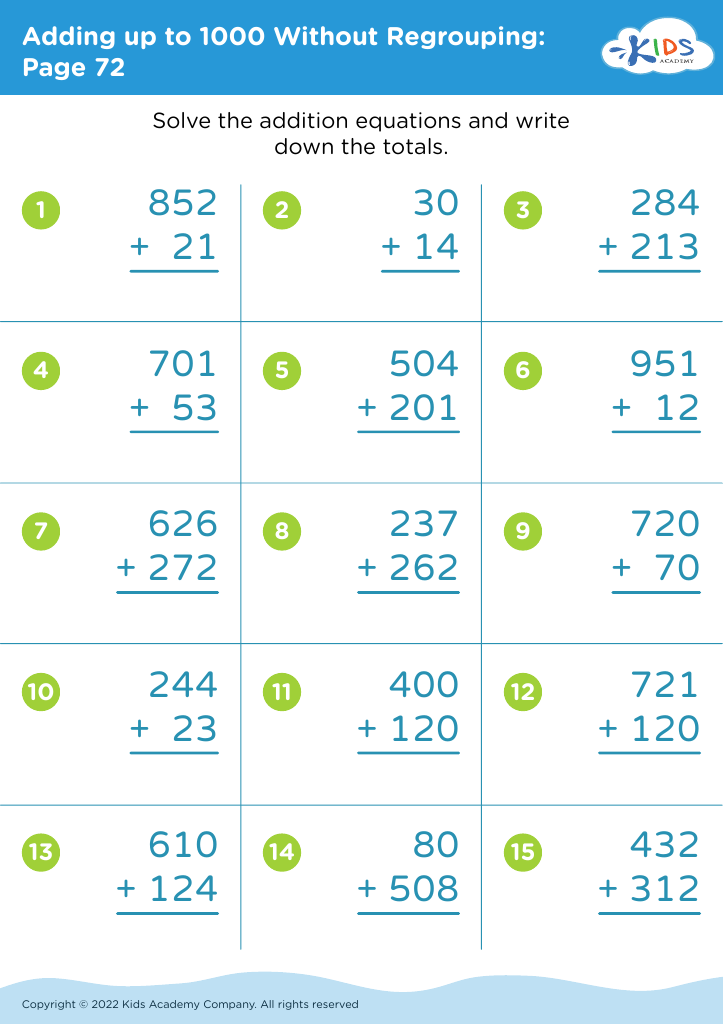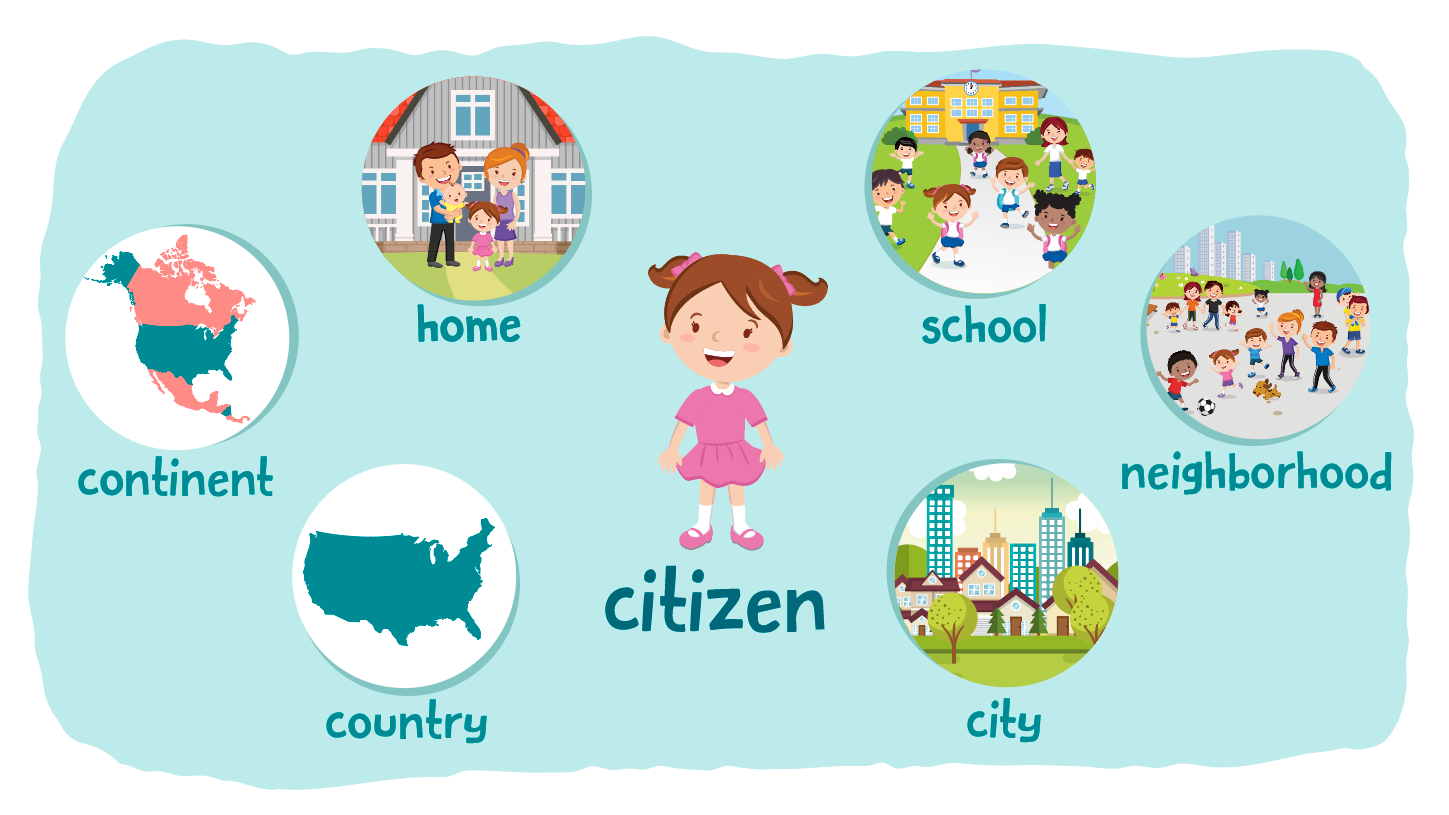Improve comprehension Worksheets for Ages 3-7
5 filtered results
-
From - To
Boost early learning with our "Improve Comprehension Worksheets for Ages 3-7." Designed by expert educators, these engaging activities help young learners enhance their listening, reading, and understanding skills through fun exercises and interactive storytelling. Utilizing colorful visuals and age-appropriate content, these worksheets cater perfectly to preschool and early elementary students. Parents and teachers can easily access and integrate these tools into daily learning routines to support their children's academic growth. Elevate your child's early educational journey today with our comprehensive, printable worksheets that meld learning with fun!
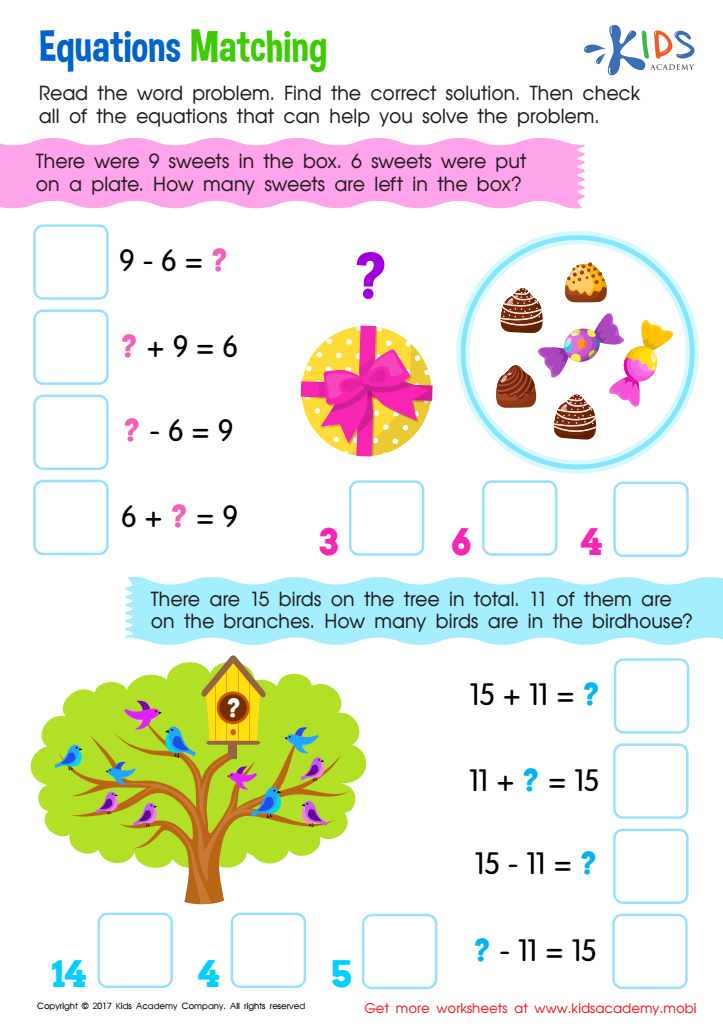

Equations Matching Word Problems Worksheet
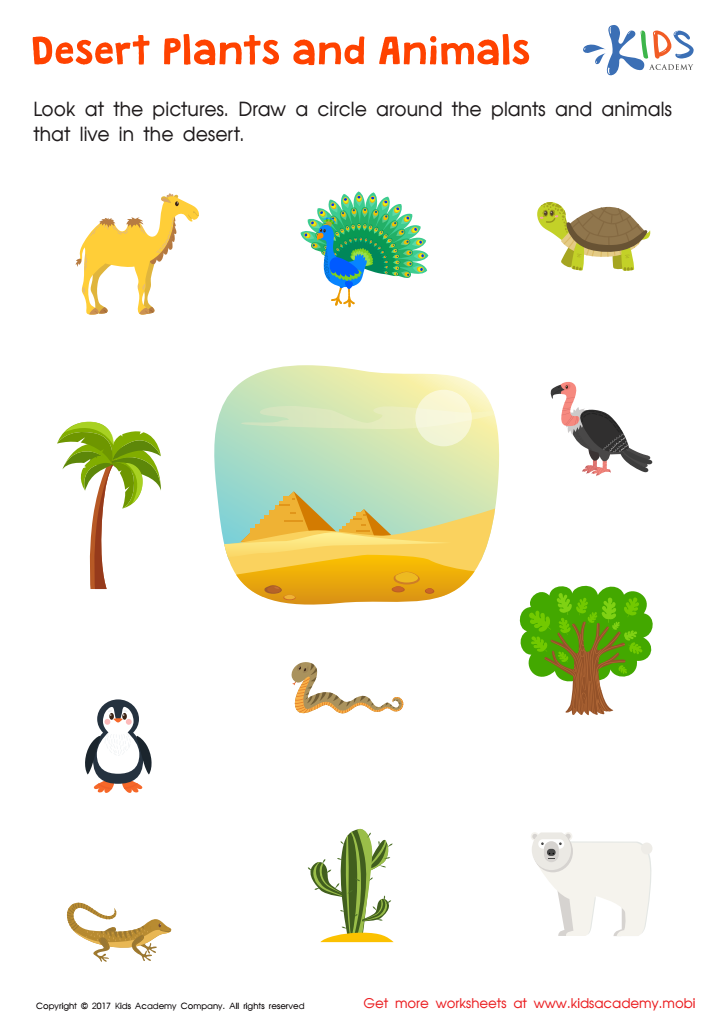

Desert Plants Animals Printable
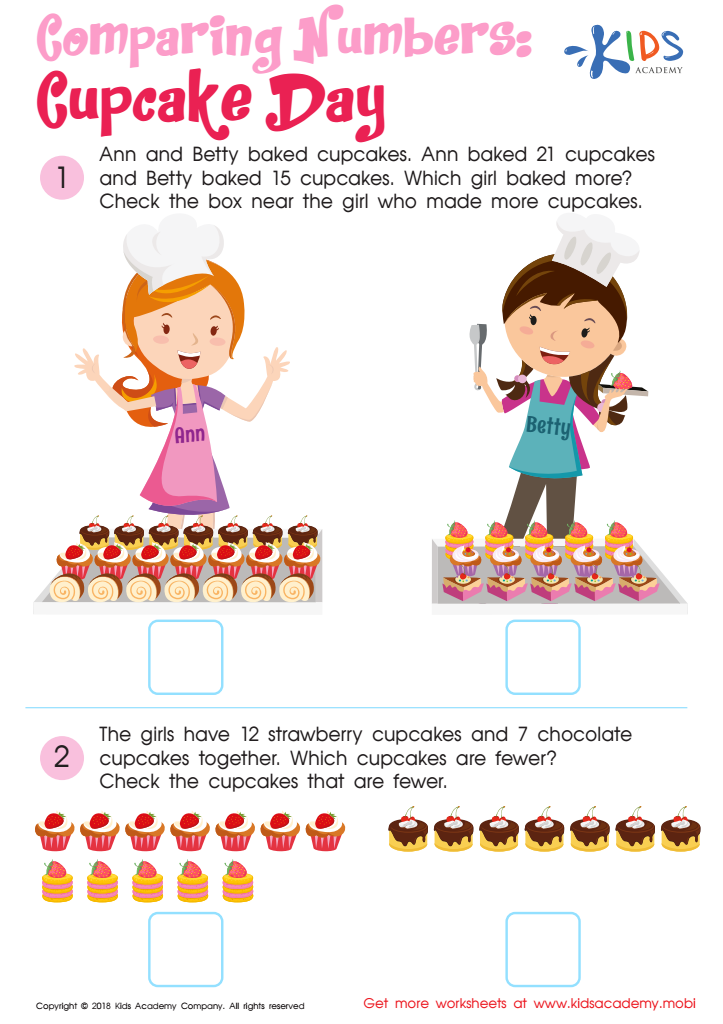

Cupcake Day Worksheet
Improving comprehension skills in children aged 3-7 is crucial for their overall cognitive development and future academic success. At this formative stage, children are rapidly building the foundation for their lifelong communication and learning abilities. Comprehension is essential because it not only involves understanding words and their meanings but also interpreting, analyzing, and making sense of information. This skill is fundamental for reading proficiency, which directly affects a child's performance across all subjects, including math and science.
For parents and teachers, fostering good comprehension skills early on enhances a child’s ability to follow instructions, interact socially, and sustain attention during tasks. Engaging activities like reading stories, asking open-ended questions, and discussing new concepts can significantly improve their language skills, creativity, and imagination.
Moreover, strong comprehension skills boost a child’s confidence and curiosity, making learning an enjoyable and fulfilling experience. When children comprehend well, they're more likely to develop a love for reading and a passion for discovering new things. This enthusiasm for learning contributes to their long-term academic success and personal growth.
In summary, parents and teachers should care about improving comprehension skills in young children to set them on a path of continuous learning, academic achievement, and effective communication.

 Assign to My Students
Assign to My Students
